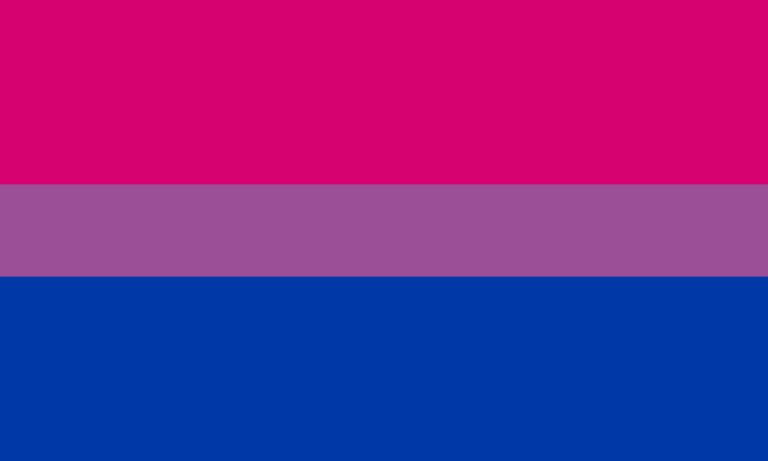
I love bisexuals, and I’m proud to be bi, myself!
Being a sex science nerd, I’ve encountered a lot of information about how bi people have worse mental health outcomes than straights and gays, are often ostracized and disbelieved, etc.
While it’s super important for that type of research to exist, today I felt like highlighting some scientific findings about bi people that are, shall we say, a little more fun. I hereby give you permission to use these as openers the next time you’re flirting with a fellow bi person, whether on a dating app for bisexual people or anywhere else!
Bi men sound masc as hell
Australian researchers Morandi et al. published a 2023 study called “BIDAR: Can Listeners Detect if a Man Is Bisexual from His Voice Alone?” in which they played recordings of men’s voices – some gay men, some bi men, and some straight men – to their 70 participants, who then had to guess the sexual orientation of each man and rate how masculine he sounded.
As many bisexuals already know well, stereotyping sucks and “masculinity” is a construct… but I did find it interesting that the bisexual men were “perceived as the most masculine-sounding of all the speakers”! I imagine many people would assume that the straight men would “sound the most masculine,” but that wasn’t the case. (Worth noting here that “sounding masculine” is not the same thing as being masculine, or as self-identifying that way.)
This made me think about a Dan Savage theory I heard years ago, that bi men may be more self-assured than both straight and gay men, because they aren’t as beholden to the restrictive masculinity norms enforced by both straight and gay communities. I’m not sure how true that is, but it’s certainly thought-provoking!
Each generation gets more bi
Maybe the kids are alright! According to a 2023 paper called “The Rise of Bisexuality” in the Journal of Sex Research, over 6% of people in the 18-29 age range now identify as bisexual, versus less than 2% of people over the age of 40. Newer research shows even bigger differences: a 2024 PRRI survey found that 7% of millennials and 15% of Gen Z self-identify as bi – versus Gen X’ers, Baby Boomers, and the Silent Generation, of which 2% or fewer identify as bisexual.
These stats are bittersweet, because the likeliest explanation is simply that there’s more widespread knowledge and acceptance of bisexuality now, making it easier for bisexuals to come to terms with their identity and come out (if and when they want to). My hope is that the influx of bi-identifying youth will inspire older generations to finally kick open that closet door.
Bi women are the likeliest to use vibrators
Yep, it’s true! The Journal of Sexual Medicine published a study by Herbenick et al. in 2009 which showed that 79% of bi women had used a vibrator, versus 70% of gay women and 50% of straight women. More recently, a 2015 survey by Schick, Herbenick, et al. in the same journal found that bisexual and pansexual women use vibrators at higher rates than women who identify as lesbian, queer, or questioning.
I’m not sure what explains this, exactly. If diverging from the beaten path of heteronormativity makes someone likelier to love sex toys, then theoretically lesbians would be using them at higher rates than bisexuals. But women who have sex with men are the likeliest to “need” sex toys, in that traditional hetero sex doesn’t focus on clitoral stimulation as much as many women need/prefer – so maybe bi women are more open to sex toys because of their queerness, and more likely to actually use them because they’re having PIV more often than lesbians. Either way, it’s an interesting factoid to bust out at your next queer sex party!
What are your favorite facts about bisexuals?
This post was sponsored by the sex-positive dating app Flure, where you can find lots of bisexuals, among others!